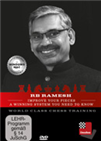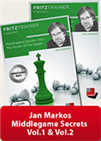A rollercoaster game!
Nodirbek Abdusattorov, now world number 4 in the live ratings list, impressed the chess world with yet another cool-headed, strong performance. By beating Parham Maghsoodloo in a completely wild game, Abdusattorov won the Prague Masters with a round to spare. Earlier this year, the 19-year-old had already performed at elite level by tying for first place in the classical section of the Tata Steel Masters.
To win the Masters event in Prague, Abdusattorov collected 5 wins, 2 draws and 1 loss. The Uzbek grandmaster got the better of Thai Dai Van Nguyen, David Navara, Mateusz Bartel and Vincent Keymer before facing Maghsoodloo in the penultimate round.
Abdusattorov entered the round as the sole leader, with his Iranian opponent in sole second place, a half point back. Out of a Sicilian Defence — Maghsoodloo is not one to shy away from a tactical struggle — Abdusattorov castled queenside with white but, true to his nature, employed a positionally sound approach.
By move 34, White had a strategic edge, with more space in a closed structure.
The natural-looking 34.Rc3, doubling on the open file, was a better move than Abdusattorov’s 34.Qc6, as Black managed to get counterplay by infiltrating via the h-file (with the white queen unable to defend from c6).
On the last move before the time control, engines did not give White an advantage anymore, but Abdusattorov nonetheless found the best idea in 40.Nxh2, giving up his queen for a rook, a knight and a dangerous passer on the c-file.
There followed 40.Nxh2 Nxc6 41.dxc6, as the players received 30 extra minutes on their clocks. The passed c-pawn would play a key role in the ensuing struggle, which featured a number of twists and turns.
Not long afterwards, engines reacted negatively to Abdusattorov’s 49.b3, a losing mistake.
The winning move for Black here is 49...Qa7, keeping an eye on the c-file (both the queen and the knight defend the c7-square) while threatening to infiltrate via the a7-g1 diagonal.
Maghsoodloo, however, missed this golden opportunity by playing 49...Nd4 after thinking for close to 7 minutes. Abdusattorov quickly replied by 50.c7, and Maghsoodloo went on to manoeuvre his queen to penetrate his opponent’s camp via the h-file.
All throughout the ensuing sequence (starting from move 49), engines assessed the position as balanced — until disaster struck for the Iranian grandmaster on move 58.
With the white c-pawn standing one square away from queening, protected by a strong centralized knight, Black is forced to look for ways to get a perpetual check. Out of the two potential checks (from c1 or a5), however, Maghsoodloo opted for the wrong alternative.
- 58...Qc1+ might be followed by 59.Kb4 Qc5+ 60.Ka4 Qa7+ 61.Kb4 Qc5+, etcetera, with a draw by perpetual
- 58...Qa5+, on the other hand, is bad due to 59.Ba4 Qa6 60.Kb4 Qb7+ 61.Bb5
 In this course, we will learn how to identify passively placed pieces in any given situation and how to improve their health by bringing them into active squares.
In this course, we will learn how to identify passively placed pieces in any given situation and how to improve their health by bringing them into active squares.The pawn is still on c7, while the black queen’s mobility has been greatly hampered.
Abdusattorov needed seven more moves to convert his advantage into the full point that gave him overall victory in the 10-player event — with a round to spare!

Parham Maghsoodloo | Photo: Petr Vrabec
Earlier in the day, Gukesh obtained his second win of the event by beating an out-of-form Vincent Keymer. The German prodigy came from losing to Abdusattorov in the previous round — and though he beat Vidit in round 6, he did it after the Indian star blundered in a completely winning position.
A tactical skirmish saw Gukesh out-calculating his opponent.
When he entered this line, Gukesh most likely had foreseen 20.Rhf1 here, not fearing 20...Nxe3, as in that case he would count with 21.Rxf7+ Kxf7 22.Qg6+, followed by a quick checkmate.
Keymer instead went for 20...Qe7 (better was 20...Ne5, though Black is already in deep trouble), and after 21.g6 f6 22.h3 d5 Gukesh’s attack is devastating — he can even give up his queen and still win.
Instead of saving his queen with 23.Qb2, which is also good, Gukesh played the more precise 23.hxg4 Rxc4 24.Rxf6+ Ke8 25.g7, winning.
Black is doomed. Resignation came after 25...Rxc2+ 26.Bxc2 Qxg7 27.Bg6+
 Let us learn together how to find the best spot for the queen in the early middle�game, how to navigate this piece around the board, how to time the queen attack, how to decide whether to exchange it or not, and much more!
Let us learn together how to find the best spot for the queen in the early middle�game, how to navigate this piece around the board, how to time the queen attack, how to decide whether to exchange it or not, and much more!Remarkable!
All remaining games ended drawn, with Mateusz Bartel and Praggnanandhaa playing an exciting, double-edged Sicilian. Going into the final round, three players are sharing second place 1½ points behind the (early) tournament winner: Pragg, Maghsoodloo and Nguyen.

Dommaraju Gukesh | Photo: Petr Vrabec
Results - Round 8
Standings after round 8
All games
Challengers: Santos co-leader, Gurel gets GM title at 15
The marquee matchup of round 8 in the Challengers saw Jaime Santos grabbing a third win in four games by beating former co-leader Anton Korobov. Santos thus caught Ediz Gurel in the lead of the standings.
Santos ended the game with an elegant queen transfer to the kingside: 50.Qa1
White both has mating threats and is well-positioned to simplify into a winning endgame with his passed pawn on the queenside — e.g. 50...Bf8 51.Qg1+ Kh8 52.Bg5 Be7 53.Bxe7 Qxe7 54.Qg5, and Black is forced to trade queens.
 Two Super Grandmasters from India explain the ins & outs of Attack, Tactics an Calculations in these two video courses.
Two Super Grandmasters from India explain the ins & outs of Attack, Tactics an Calculations in these two video courses.Instead of going through the motions in this line, Korobov resigned the game in the first diagrammed position.
Korobov will play white against Gurel in the final round, while Santos will get the black pieces against Vaishali.
Remarkably, Gurel’s draw with Erwin l’Ami in round 8 secured him his third and final GM norm. At 15, the prodigy became the youngest Turkish player to ever get the GM title!

Ediz Gurel | Photo: Petr Vrabec
Results - Round 8
Standings after round 8
All games
Links
























